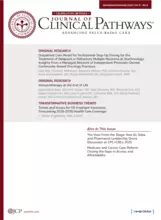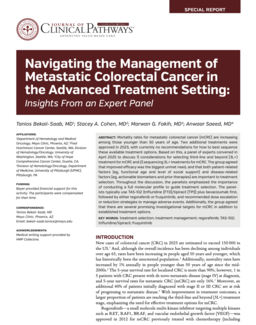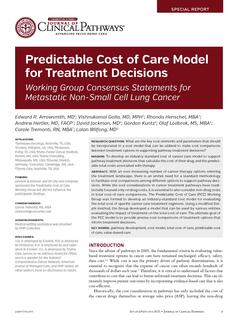Projected Cost and Time Savings With Pacritinib in Transfusion-Dependent Myelofibrosis
An economic analysis of the PERSIST-2 trial, presented at ASCO 2025, suggests that pacritinib may offer significant reductions in both cost and time burden associated with red blood cell (RBC) transfusions in patients with myelofibrosis (MF) and anemia. Pacritinib, a JAK2/IRAK1/ACVR1 inhibitor that spares JAK1, had previously demonstrated clinical benefit in patients with anemia, including improvements in transfusion independence and reduction in transfusion burden compared to best available therapy (BAT), which included ruxolitinib and erythroid support.
In PERSIST-2, 37% of patients who were not transfusion independent (non-TI) at baseline and were treated with pacritinib achieved transfusion independence during any 12-week period over the 24-week trial, compared with only 7% of those receiving BAT. Furthermore, 49% of patients on pacritinib had a ≥50% reduction in transfusion burden, compared with 9% on BAT. These clinical outcomes were accompanied by lower mean RBC transfusion rates (2.45 vs 3.54 per 30 days).
Building on these findings, the current economic evaluation modeled the annualized impact of pacritinib on transfusion-related medical costs and time burden. Transfusion visit rates were extrapolated from trial data and cost estimates were based on a prior burden-of-illness study using IBM MarketScan data, adjusted to 2024 US dollars. Time burden was estimated using published data on transfusion-related visits in patients with β-thalassemia.
The analysis projected that treatment with pacritinib would result in a 19.5% reduction in annual transfusion-related costs—approximately $61 000 in savings per patient ($252 000 vs $313 000)—and a 25.3% reduction in transfusion-related time burden, equating to 172 fewer hours annually (508 vs 680 hours). Among patients who were non-TI at baseline, the projected cost and time savings were even greater: $73 000 and 204 hours per year, respectively. These findings were consistent across subgroups, regardless of the specific BAT used.
Overall, the results support the potential value of pacritinib in reducing the clinical and economic burden associated with transfusion-dependent anemia in MF, highlighting the importance of therapies that can meaningfully improve both patient outcomes and health care resource utilization.
Reference
Oladapo A, Roman-Torres K, Gerds A, Oh S. Transfusion-related cost and time burden offsets in patients with myelofibrosis treated with pacritinib compared to best available therapy based on PERSIST-2 trial. Presented at the 2025 American Society of Clinical Oncology Annual Meeting; May 30-June 3, 2025. Chicago, Illinois.













